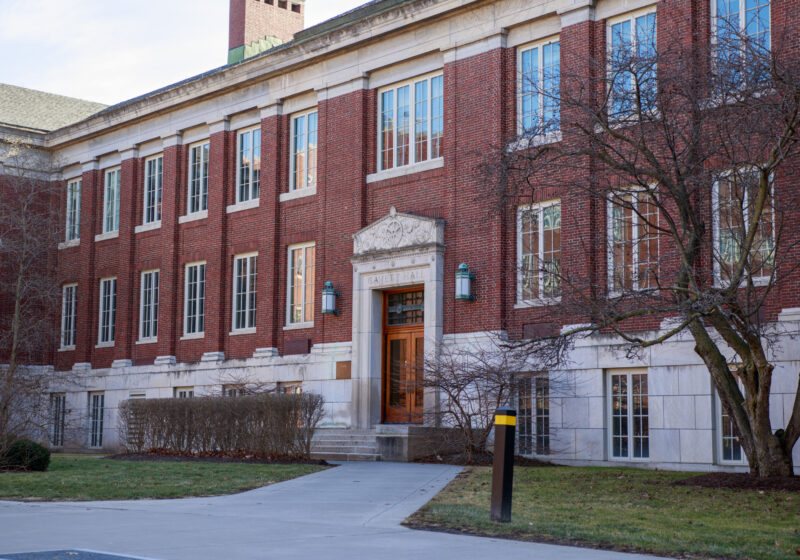Within the Hajim School of Engineering and Applied Sciences, the University offers an intensive program for a Bachelor of Science in Audio and Music Engineering (AME) consisting of 130 credits focusing on the technical aspects of music and audio production.
On Jan. 24, a new major proposal was submitted to the College Curriculum Committee introducing a Bachelor of Arts in Audio Arts and Technology within the Department of Electrical and Computer Engineering and Audio and Music Engineering program. The course proposal describes the major as targeted toward students “motivated to study the applied and artistic aspects of audio and sound without deeply going into the technical and engineering aspects of audio.”
Senator Kenneth MacInTyre-Beiter, during the recent Students’ Association meeting, described it as a major that is “meant to be an easier and less intensive form of Audio and Music Engineering,” which is attributed to the major consisting of less technical courses — in direct comparison to the current AME major, which places focus on a strong mathematical and engineering foundation.
This major would include 14 required courses, amounting to about 56 credit hours — less than half of the 130 credit hours required for the existing program for a B.S. in Audio and Music Engineering. In contrast with the current program where over half of required credits are dedicated to the major in basic science, mathematics, and engineering courses, the new proposal calls for a shift in focus towards the more creative aspect of AME.
Of the 10 undergraduate majors offered at the Hajim School of Engineering and Applied Sciences, the Audio and Music Engineering Program had the fourth lowest number of degrees granted in the 2021-2022 school year. Only 17 students were granted the degree, and only 57 students were enrolled in the department at the time.
The rationale for the major includes attracting more students to the University wanting to study audio and sound from a creative perspective, as well as attempting to expand the currently existing AME program.
The lower credits to complete the major are meant to encourage students to complete the degree and get a dual degree. The proposal advertises related disciplines in “which sound, speech, music, and people’s interaction with sound plays an important role.” This includes promoting dual Business, Digital Media Studies, and Linguistics degrees. The current B.S. in Audio and Music Engineering offers no time to complete a dual degree due to the number of credits necessary for the program.
At the moment the only other options include a B.A. in Engineering Science with a program focus on Audio and Music Engineering or a minor track in Audio and Music Engineering consisting of 18 to 20 credits. There are 5 minor tracks to choose from and a related cluster that fulfills the Natural Sciences and Engineering area of the Rochester Curriculum.
The Audio and Music Engineering Program Chair, Mark F. Bocko, has approved the proposal. The vote to approve the major was pushed back until it was decided if the major would fulfill the necessary requirements for a Bachelor of Arts considering most of the courses are from the already existing Audio and Music Engineering program.
The only new course introduced would be exclusive to this new major, AME 385: Capstone Project for AAT Majors.
The major would allow the transition of students with already declared majors into the new program. There would only be two pre-requisite courses that are already included in the major.
The proposed start date of the program, if successfully voted on, would be the upcoming Fall 2023 semester.







